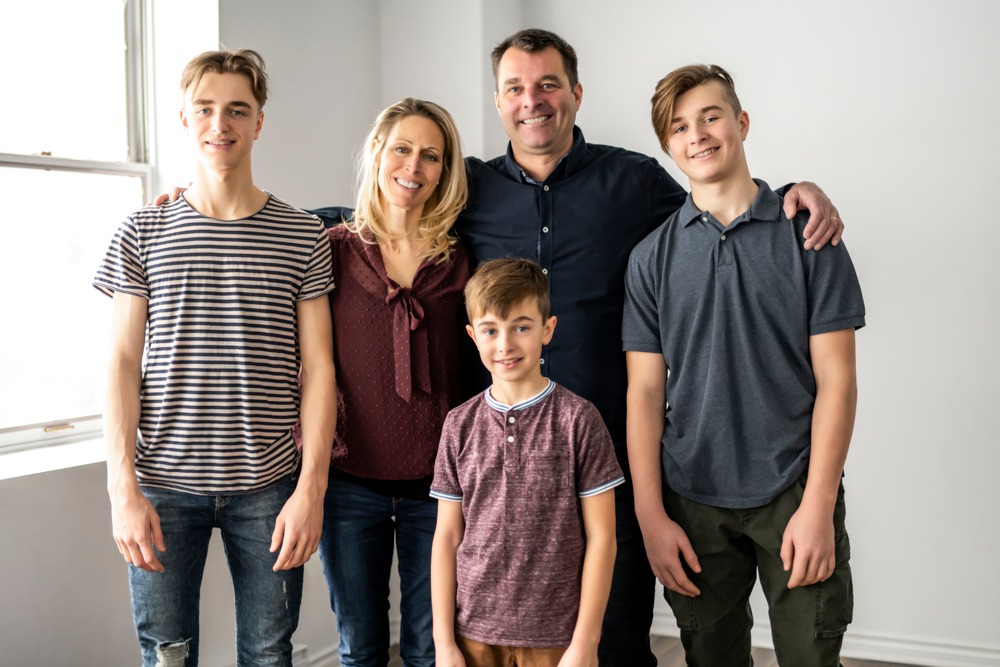Recovery from addiction is a journey that does not happen in isolation. The process often involves changes that affect not only the individual but also those around them. Family members, whether related by blood or chosen through close relationships, play an important part in this process. Understanding the importance of family support in recovery can help clarify what role loved ones have in family addiction recovery. Free by the Sea offers comprehensive addiction treatment that includes family involvement in Ocean Park, Washington.
Why Family Support In Addiction Recovery Matters
Jump to Section
When someone struggles with addiction, their family often feels helpless. You may wonder if your involvement actually makes a difference. The answer is clear: family support significantly improves recovery outcomes and plays a vital role in our aftercare program in Washington.
In the context of recovery, “family support” refers to emotional, psychological, and practical help provided by both biological relatives and chosen family, such as close friends or mentors. This support can take many forms, including attending therapy sessions together, communicating openly, and participating in recovery-related activities.
Key benefits of family support in recovery include:
- Reduced Relapse Rates: Individuals with strong family involvement often experience lower relapse rates compared to those without such support
- Improved Treatment Completion: Programs that include family support report higher completion rates for those without family involvement
- Enhanced Emotional Stability: Family connections help reduce feelings of isolation, supporting emotional well-being during and after treatment
- Better Long-Term Outcomes: People with ongoing family support are more likely to maintain recovery for two years or longer
Family addiction recovery recognizes that healing is not just about the individual, but about restoring and strengthening the bonds that support lasting change.
Common Family Challenges When Helping With Addiction
Addiction affects the entire family, not just the person who is using substances. When one person struggles with addiction, family members may experience changes in their daily lives, relationships, and emotional well-being.
Enabling Behaviors
Enabling is a pattern where family members help the person with addiction avoid the consequences of their actions. Enabling can happen when a family member tries to protect, rescue, or cover up for the person struggling with addiction.
Common enabling behaviors include:
- Giving money to the person with addiction, even when it is likely to be used for substances
- Covering up or making excuses for missed work, school, or family events
- Doing tasks for the person that they could do themselves
- Ignoring or hiding the problem from others
Enabling behaviors can delay recovery and increase the risk of relapse, as the person with addiction does not face the natural results of their decisions.
Codependency Struggles
Codependency is when a family member becomes overly involved in the life and problems of the person with addiction. This relationship pattern can make it difficult for both people to set healthy boundaries.
When you have family member struggling with addiction, you may notice these warning signs of codependency:
- Constant Worry: Thinking about the person with addiction most of the time
- Self-Neglect: Putting the other person’s needs ahead of your own all the time
- Difficulty with Boundaries: Trouble saying “no” or expressing your own feelings
- Taking Responsibility: Feeling responsible for the other person’s choices or emotions
- Seeking Validation: Looking for approval or self-worth through fixing or rescuing the person with addiction
Codependency can develop over time and is common in families affected by addiction.
Emotional Distress And Anxiety
Family members often experience a range of emotions when dealing with addiction in the household. These may include fear, sadness, anger, guilt, or helplessness. The stress of helping a family member with addiction can be significant.
Healthy Roles And Boundaries For Family Members
In recovery, boundaries help families offer support without losing sight of their own well-being. Healthy boundaries are a key part of family support for addiction.
| Unhealthy Support Behaviors | Healthy Support Behaviors |
| Ignoring or denying substance use | Acknowledging the reality of addiction |
| Taking over responsibilities for the loved one | Encouraging self-sufficiency |
| Excusing or covering up mistakes | Allowing natural consequences |
| Withholding feelings out of fear of conflict | Expressing feelings honestly and respectfully |
| Sacrificing personal needs for the loved one | Practicing self-care and setting limits |
Setting Realistic Expectations
Realistic expectations recognize that recovery is a process with ups and downs, not a quick or perfect journey. Unrealistic expectations might include believing that a loved one will never face setbacks or that change happens overnight.
Examples of realistic vs. unrealistic expectations:
- Unrealistic: “You will be cured after finishing treatment”
- Realistic: “Recovery takes time, and there may be challenges along the way”
- Unrealistic: “You will never want to use substances again”
- Realistic: “Cravings are normal, and learning to manage them is part of recovery”
Encouraging Accountability
Accountability means supporting someone as they take responsibility for their actions. Control means making decisions for someone or trying to manage their choices. Accountability in family support in addiction recovery involves encouraging loved ones to own their recovery without stepping in to fix every problem.
Ways to promote responsibility without enabling include:
- Ask how you can support their goals, rather than doing things for them
- Encourage them to attend meetings or therapy but allow them to choose
- Respond to setbacks with understanding, not by rescuing or covering up
- Acknowledge positive steps and progress, rather than focusing only on mistakes
Practicing Self-Care
It’s important to practice self-care as a caregiver to prevent burnout. Self-care strategies for recovery for family members include:
- Physical Care: Regular sleep, nutrition, and exercise
- Emotional Support: Connecting with others in support groups or counseling
- Boundary Setting: Setting limits on time, money, and emotional energy
- Personal Time: Taking regular breaks to rest or pursue hobbies
- Professional Help: Seeking guidance when feeling overwhelmed
Practical Ways To Support A Loved One’s Healing
When families take part in supportive behaviors, people in recovery are more likely to finish treatment and stay sober longer. Support can be shown in several ways, including regular communication, involvement in therapy, and joining support groups.
Offering Consistent Emotional Support
Consistent emotional support can help reduce feelings of isolation and shame. Positive encouragement from family and recovery networks is linked to better mental health and lower relapse rates.
Supportive actions that build healthy family and recovery connections:
- Active Listening: Listen without judgment or trying to fix problems
- Regular Check-ins: Simple texts or calls to show you care
- Respecting Boundaries: Honor the person’s privacy and recovery decisions
- Attending Important Events: Being present for appointments or milestones
- Acknowledging Progress: Recognizing both small steps and major achievements
Participating In Family Therapy
Those who attend family therapy are more likely to complete treatment and have sustained recovery, compared to those without family involvement. Family therapy provides a space to address communication, rebuild trust, and solve problems together.
Different family therapy approaches include:
- Behavioral Couples Therapy: Focuses on improving communication between partners
- Multi-Family Group Therapy: Several families work together in a group setting
- Family Systems Therapy: Looks at how family roles and relationships influence recovery
Joining Family Support In Addiction Recovery Programs
Family support in addiction recovery can include participation in both in-person and online support groups. Benefits of peer support in these programs include:
- Opportunities to share experiences with others facing similar challenges
- Access to coping strategies and new perspectives
- Reduced feelings of isolation and stress
- Practical advice from people who have managed similar situations
Building A Recovery Family Through Ongoing Involvement

A “recovery family” refers to the group of people who offer support during and after treatment for addiction. This group can include biological relatives like parents, siblings, and children, as well as chosen family such as close friends, mentors, or anyone who provides positive encouragement and accountability.
Family involvement in recovery is not limited to the treatment phase. Ongoing support from a recovery family can include regular communication, attending support meetings together, participating in therapy, and maintaining healthy routines at home. Individuals who have long-term family involvement are more likely to achieve stable recovery.
FAQs About Family Support In Recovery
How can I support a family member in recovery without enabling their addiction?
Providing support involves being present, listening, and encouraging healthy choices while letting natural consequences occur if the person returns to old behaviors. This approach helps the family member learn responsibility for their actions.
What specific resources are available for families affected by addiction?
Resources include support groups like Al-Anon and Nar-Anon, individual and family therapy, educational materials from SAMHSA and NIDA, and community-based recovery programs designed specifically for family members.
What is the best way to respond when my loved one in recovery experiences a relapse?
Responding with understanding while maintaining healthy boundaries allows the person to experience the results of their actions while still feeling supported. Avoid rescuing behaviors but continue to offer emotional support.
How can family members who live far away meaningfully support someone in recovery?
Distant family members can use video calls, text messages, and regular check-ins to stay connected and offer consistent encouragement throughout the recovery process
Moving Forward With Family And Recovery

Recovery is a process that continues over time and does not end after treatment. Families play an ongoing role by maintaining open communication, setting healthy boundaries, and adapting to changes as recovery progresses. Family healing often happens along with a loved one’s recovery. Patterns that developed during addiction can shift, and new routines or ways of relating may develop. When families and individuals work on their own growth, both can experience positive changes.
Free by the Sea uses a comprehensive approach that includes both individuals and their families throughout the recovery journey. Family and recovery are connected, and support can come from any family member, friend, or trusted person. Recovery is possible for individuals and families with appropriate support and continued involvement.
For information on family-inclusive treatment options, Free by the Sea provides guidance and support tailored to individuals and families involved in the recovery process. Questions about program details, insurance verification, or next steps can be addressed by contacting us. Our staff are available to assist with questions about participation, coverage, and available services.
References
- National Institute on Drug Abuse. “Principles of Drug Addiction Treatment: A Research-Based Guide (Third Edition).” https://nida.nih.gov/publications/principles-drug-addiction-treatment-research-based-guide-third-edition
- Substance Abuse and Mental Health Services Administration. “Family Therapy Can Help: For People in Recovery From Mental Illness or Addiction.” https://store.samhsa.gov/sites/default/files/d7/priv/sma15-4907.pdf

Dr. Richard Crabbe joined our team in 2019 as our psychiatrist and medical director. He attended the University of Ghana Medical School where he became a Medical Doctor in 1977. From 1978 through 1984, he was a medical officer in the Ghana Navy and provided a variety of services from general medicine to surgeries. He received his Certificate in General Psychology from the American Board of Psychology and Neurology in 2002.

 November 4th, 2025
November 4th, 2025










